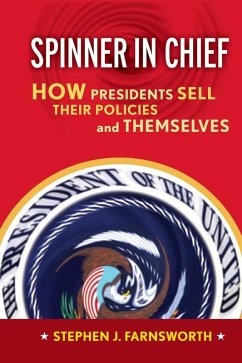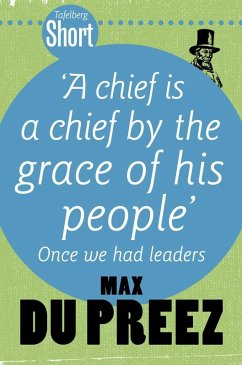
Celebrating Chief Luthuli's Life Through His Heritage Trail (eBook, ePUB)
Sofort per Download lieferbar
14,99 €
inkl. MwSt.

PAYBACK Punkte
0 °P sammeln!
WE STAND BY OUR CHIEF!As minds naturally fade and history becomes a rather distant past, colossal figures of the past do not get a mention. Yet, in many of their speeches and utterances, political leaders, academics, analysts, historians, and scholars have never forgotten to mention the name of Chief Albert Mvumbi Luthuli. His successors were portrayed as bent on the violent removal of the Apartheid Government ―unlike the Chief‖. To consolidate his ― peacefulness‖, his life is paired with the life of religion for an even greater political separation between the Chief an...
WE STAND BY OUR CHIEF!
As minds naturally fade and history becomes a rather distant past, colossal figures of the past do not get a mention. Yet, in many of their speeches and utterances, political leaders, academics, analysts, historians, and scholars have never forgotten to mention the name of Chief Albert Mvumbi Luthuli. His successors were portrayed as bent on the violent removal of the Apartheid Government ―unlike the Chief‖. To consolidate his ― peacefulness‖, his life is paired with the life of religion for an even greater political separation between the Chief and those who followed him. To perpetuate this distance between the Chief and the revolutionaries who followed him, the argument goes that his moments of radicalism were forced upon him by the young elements within the African National Congress and the Communists. Little is told that his religion was but one of his multi-faceted life. This tries to reduce Chief Albert Luthuli to a "moderate" when he was a revolutionary in his own right.
In this book, I have tried to knit together many areas of his activities, such as football, politics, music, his love for his family, his agriculture, his internationalism, his world view, his Africanism within his Zuluness, his respect across the colour and his mysterious death among others. All that is known and celebrated as if it was liked by all, including the Government of the Day, is him becoming the first African to win a Nobel Peace Prize. The difficulties he went through to be awarded that prize in Norway is so underplayed. His tenure as ANC President-General of the African National Congress during the Defiance Campaign, the Kliptown, and the Freedom Charter, Sharpeville Massacre, the women's march to the Union Buildings, and the beginning of the armed struggle are disappearing into oblivion. I have also tried to trace some of the awards, recognitions, and citations by various institutions, past and present.
As minds naturally fade and history becomes a rather distant past, colossal figures of the past do not get a mention. Yet, in many of their speeches and utterances, political leaders, academics, analysts, historians, and scholars have never forgotten to mention the name of Chief Albert Mvumbi Luthuli. His successors were portrayed as bent on the violent removal of the Apartheid Government ―unlike the Chief‖. To consolidate his ― peacefulness‖, his life is paired with the life of religion for an even greater political separation between the Chief and those who followed him. To perpetuate this distance between the Chief and the revolutionaries who followed him, the argument goes that his moments of radicalism were forced upon him by the young elements within the African National Congress and the Communists. Little is told that his religion was but one of his multi-faceted life. This tries to reduce Chief Albert Luthuli to a "moderate" when he was a revolutionary in his own right.
In this book, I have tried to knit together many areas of his activities, such as football, politics, music, his love for his family, his agriculture, his internationalism, his world view, his Africanism within his Zuluness, his respect across the colour and his mysterious death among others. All that is known and celebrated as if it was liked by all, including the Government of the Day, is him becoming the first African to win a Nobel Peace Prize. The difficulties he went through to be awarded that prize in Norway is so underplayed. His tenure as ANC President-General of the African National Congress during the Defiance Campaign, the Kliptown, and the Freedom Charter, Sharpeville Massacre, the women's march to the Union Buildings, and the beginning of the armed struggle are disappearing into oblivion. I have also tried to trace some of the awards, recognitions, and citations by various institutions, past and present.
Dieser Download kann aus rechtlichen Gründen nur mit Rechnungsadresse in A, B, CY, CZ, D, DK, EW, E, FIN, F, GR, H, IRL, I, LT, L, LR, M, NL, PL, P, R, S, SLO, SK ausgeliefert werden.













